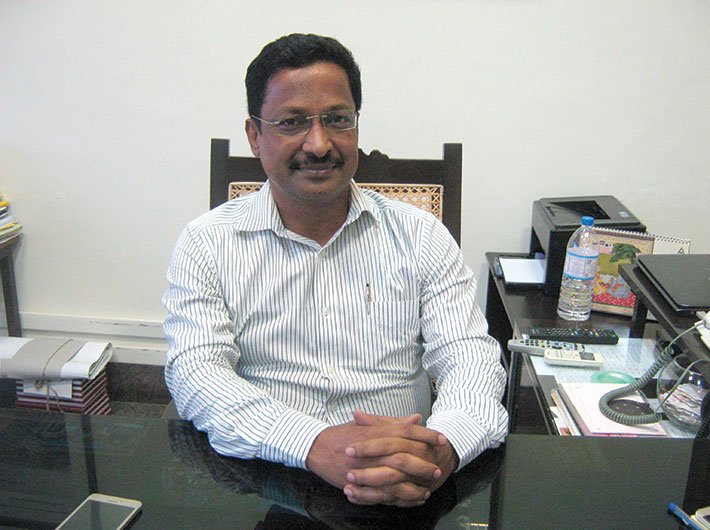Manoj Kumar Parida, chief secy of Puducherry feels that cash transfer will will enable freedom of choice to buy
In your view how cash transfer in PDS has fared in Puducherry?
In my view the scheme is absolutely successful. It is one of the experiments that have worked very well. Primary reason is, people here are aware that it is a better idea to have money and buy from an open market as plenty of choices are available to them, rather than getting confined to a particular government control shop or ration shop and at times getting food grain which is of poorer quality or damaged during transportation and does not match the local taste. People don’t have to compromise on these aspects now. People know they have a choice of shops. Also, they have a choice whether they want to buy rice or medicine for child. Freedom of choice is what I think has pleased people.
This new system eliminates massive avoidable transportation of grains from one part of the country to the other, the burden of transportation, storage loss, damage, pilferage, etc.
In fact, for transportation and storage, private sectors like rice millers and shop owners should be best utilised. It is not the government’s job to get into the network of transportation and storage when it can be avoided.
Don’t you think some people may end up spending the cash on non-essentials? There are arguments that men might drink away the money.
Chances of misuse of cash are minimal. Ration cards have been mostly issued in the name of women so money goes into her account under cash transfer scheme. But if the male member of the family decides to sell the rice to the kirana (general) shop and with that money buy liquor, even the government mechanism cannot prevent it. Having said that I believe that priority of a consumer can be best known or fixed by the consumer himself or herself. If a person is in need of food he will not misuse the money.
There is a lot of chaos in administering and implementing the scheme. Many consumers complain of not receiving cash in their bank accounts. What steps are you taking to manage it?
Except for 10,000-12,000 people in whose case we have not been able to seed the Aadhaar number, the rest have received cash. But there is a requirement of informing these beneficiaries through SMS that PDS money for the particular month has reached their bank accounts. We are going to introduce such a mechanism soon. This would be the solution for prevailing confusion. The other thing, on how the money is getting transferred is being done by the centre. The centre decides how to reconcile between the banks and how to send money. We have no authority on this.
How will the government ensure that the beneficiary uses the cash for buying foodgrains and the purpose of the scheme is not being diluted?
The centre is carrying out two studies. First study is to find out how successful the scheme is. A team appointed by the centre is doing the evaluation. Second, how much the government saved in the process.
What challenge do you see the scheme may face in future?
The major problem that the cash transfer scheme in PDS may face is when food inflation increases. The centre might say that they have fixed the amount but that calculation will always be a challenge. Unless people get adequate quantity at a particular price the scheme will not be successful.
What are the key challenges that the Puducherry government is facing in making the scheme successful?
Popularising the concept and making people aware is the only challenge. We will make more improvements and refinements in the process.
Early last year Puducherry back-tracked a similar scheme that it introduced as a pilot. Is there any future plan of the local government on restarting cash transfer in PDS?
It is going to be a political decision. But in my view the present government is prepared for the transformation that is bringing in the system of cash transfer. Since assembly elections are nearing we need to wait and watch. We are already doing cash transfer in other social welfare schemes. We have distributed flood relief money through DBT.
There have been high-decibel protests against this scheme.
Those protests have died down. If consumers support the scheme, we can go forward.
Also read: DBT Puducherry: State of confusion

